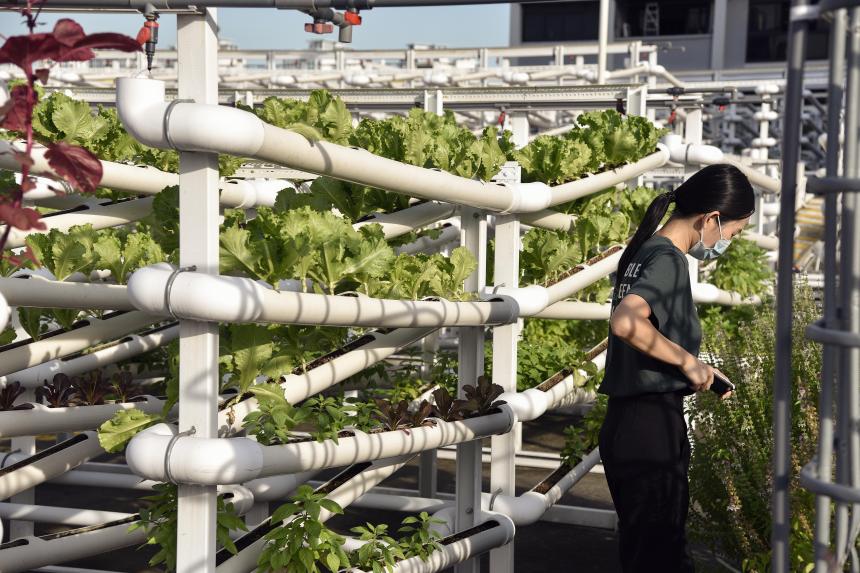SINGAPORE – Money is pouring into “green” sectors across the region and creating thousands of new jobs in the process.
A new report noted that there could be as many as 30 million sustainability-linked jobs in South-east Asia by 2030, with the region’s green economy projected to provide up to US$1 trillion (S$1.36 trillion) in annual economic opportunities.
The report by non-profit organisation Bridgespan studied job markets in Indonesia, Malaysia, the Philippines, Singapore, Thailand and Vietnam, and identified five sectors as being key to the green economy transition. The five sectors are solar, electric mobility, built environment, sustainable farming, and waste management.
The employment trend has grabbed the attention of the corporate sector. OCBC and Fidelity International, for example, created roles for chief sustainability officers in recent months.
Interest has risen in public relations and communications roles, as businesses’ focus on sustainability and environmental impact, social issues and corporate governance (ESG) has also increased the need to get across such messages, said Ms Joan Liew, a senior consultant at recruitment firm Prospect Resourcing.
The challenge is getting the right person for the role, given the fledgling nature of the ESG industry here.
Hiring managers need to strike a delicate balance between a candidate’s genuine interest in the job, prior relevant experience and technical skills. There is no one-size-fits-all.
Dr Jeremy Fox, regional chief executive at Generation, a global non-profit that trains people in the green job sector, said: “Technical skills are important, but motivation and a strong growth mindset are really what determine employability and success on the job.”
This is echoed by Dr Bo Bai, executive chairman and co-founder of Singapore-based fintech MVGX, which uses big data and blockchain technology to track carbon credits.
Dr Bai said a candidate’s genuineness and passion for sustainability is more important than having prior experience, but he acknowledged that this is “highly dependent” on the job scope.
As green skills encompass a wide range of specialisations, from advisory to technical expertise, “candidates need to have intricate background knowledge and understanding of the industry in order to provide trusted and reliable counsel”, Dr Bai added.
“From scientific understanding of the impact of climate change to crisis management and risk preparedness, green skills encompass a broad range of disciplines across both hard and soft skills.
“The reality is that the skills required to excel are quite niche, and the best way to learn is by doing,” he said.
People interested in moving to green-sector jobs can upskill through relevant courses, which they should ensure are certified and recognised by the industry they wish to move into.
Mr Dinesh Babu, an executive director at the Climate Action Data Trust with nearly three decades of experience in carbon markets and climate-related issues, said that a lot of graduate students are undertaking major projects on sustainability because “they see ESG as a viable career”.
There are many sub-subjects and expertise a person can build skills in, such as in solar, wind or hydro, or climate change in negotiation or carbon markets, regulations and policies.
Once candidates decide on whether they want to be a specialist or a generalist, they should “pick a sector, be focused”, Mr Babu advised.
More mature employees in the later stage in their careers “can learn how to move to more advisory roles and learn more about the sustainability aspects of the sector” they are in.
Keeping an open mind could help create more opportunities for job seekers. While there are plenty of green jobs for the taking, Singaporeans tend to prefer “sexier” roles in tech or software development.
Dr Fox said his non-profit has found it a challenge in Singapore to get people into “less attractive jobs” such as customer service, manufacturing and retail sales.
He noted that candidates with “fire in the belly” for employment can be easier to find in less developed markets like India, Vietnam and Thailand.
“There are good-quality jobs outside of tech in Singapore, but it’s difficult to find the motivation, especially in the younger people,” he added.
Dr Bai added that it is important not to write off carbon-intensive industries such as manufacturing, oil and gas, which are also undergoing the green transition.
“The best way to implement change is to also do it from within – people who are best positioned to enact change in these industries are those with a deep-seated understanding of it,” he said.
“This means we need to lean on these people, understand their motivations, and work closely with them to identify the opportunities to gradually make the switch to more sustainable solutions or operations.”


